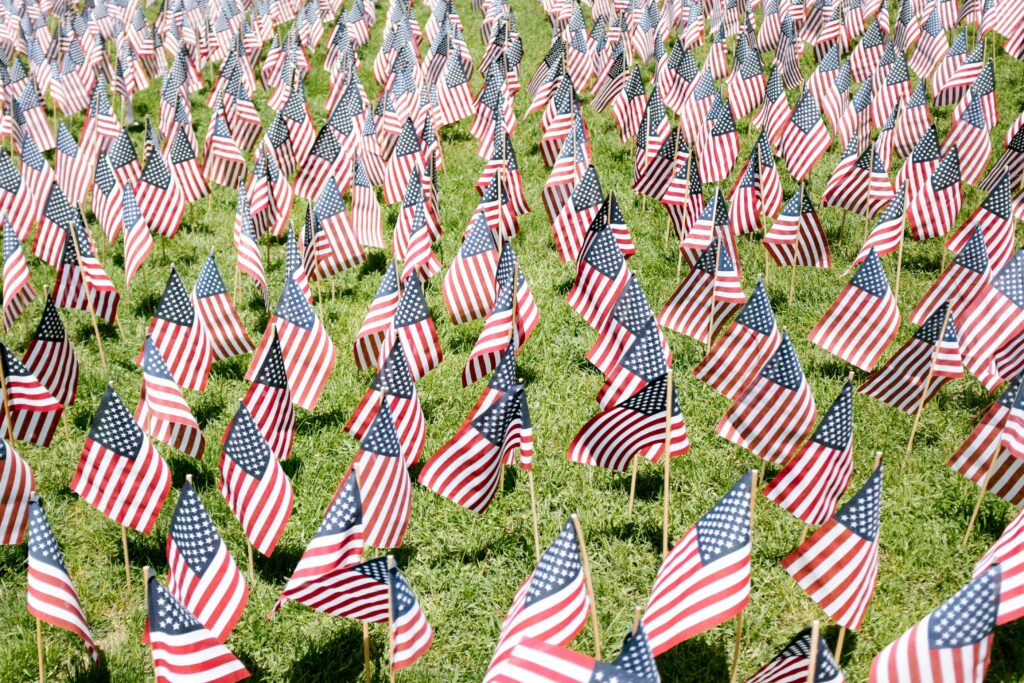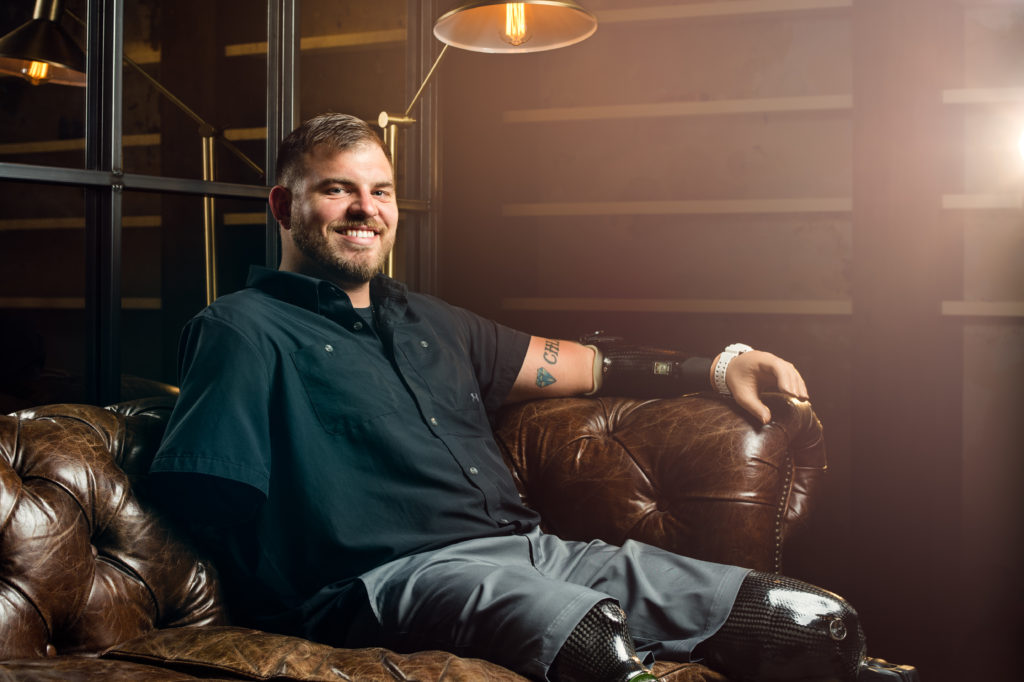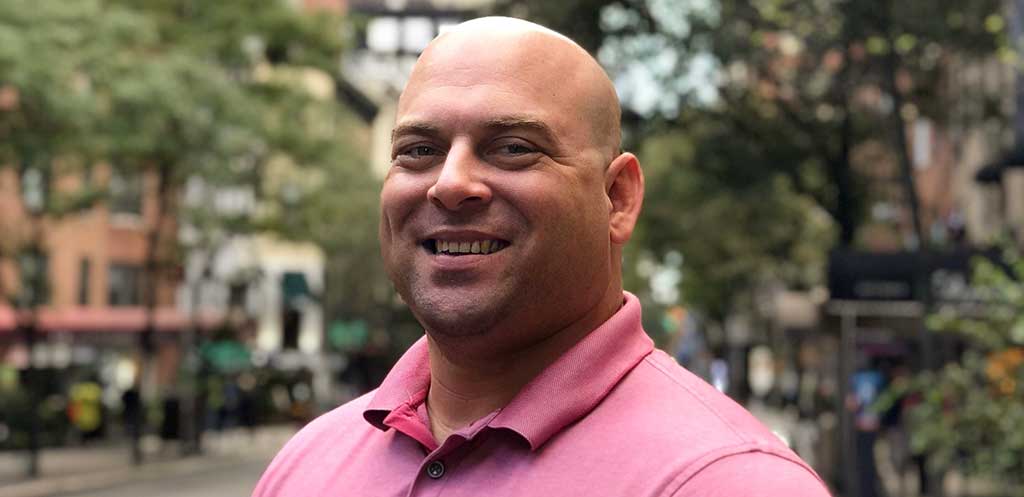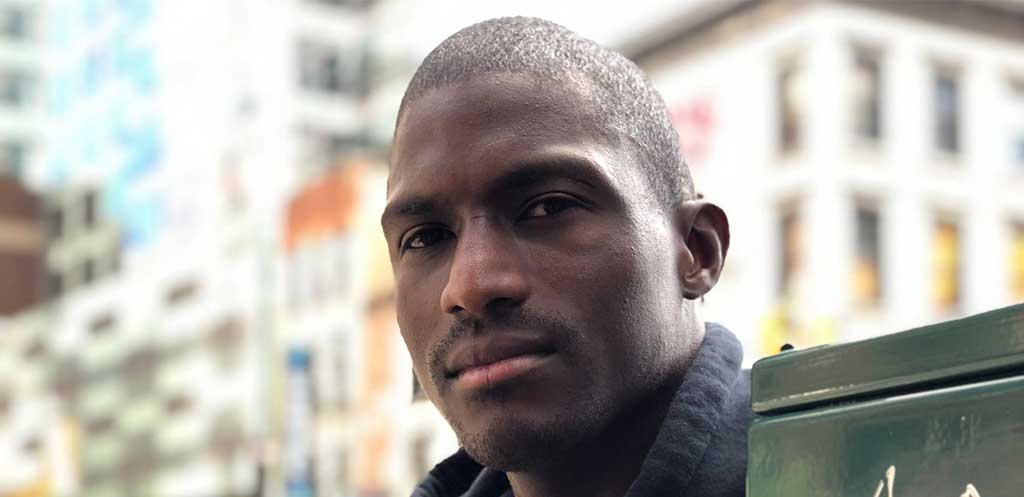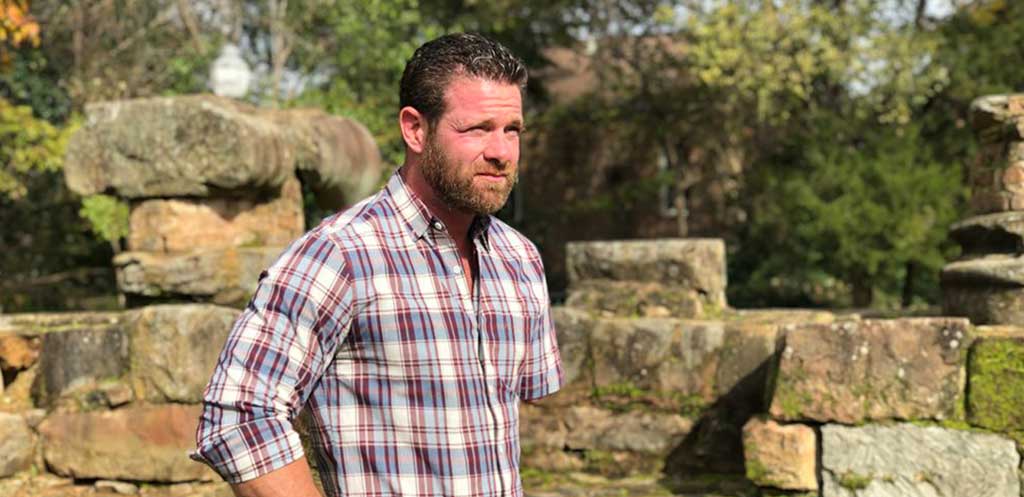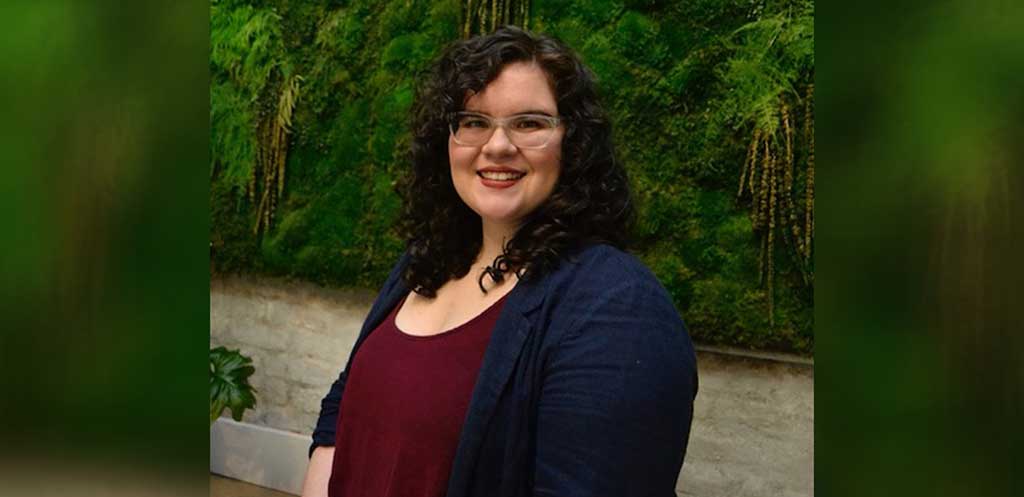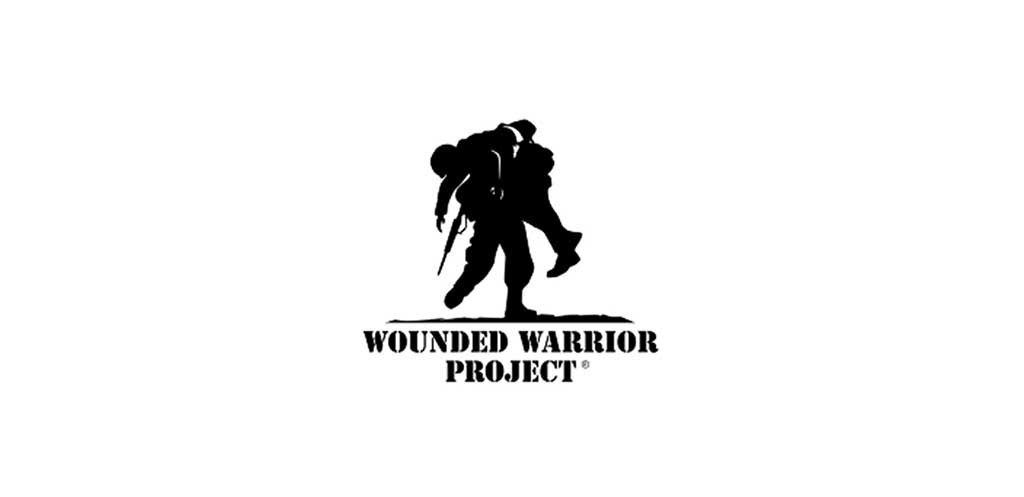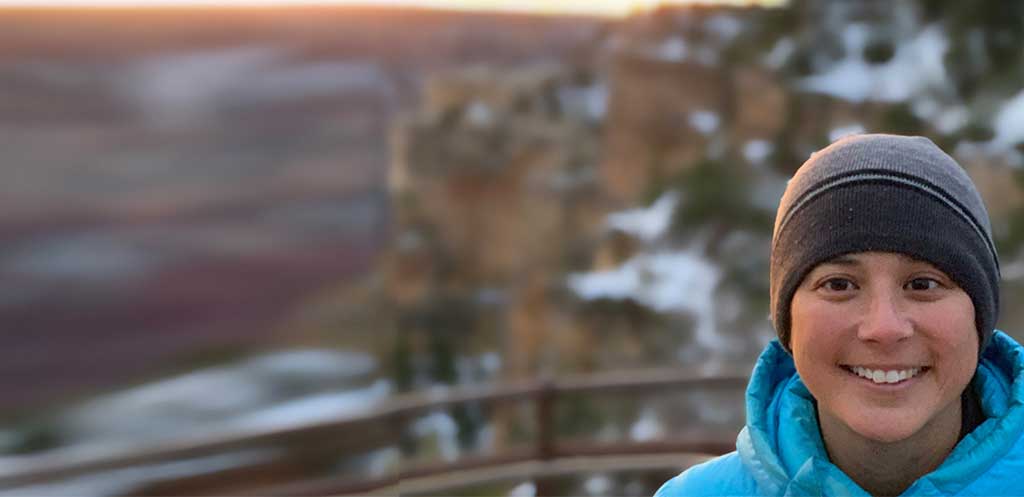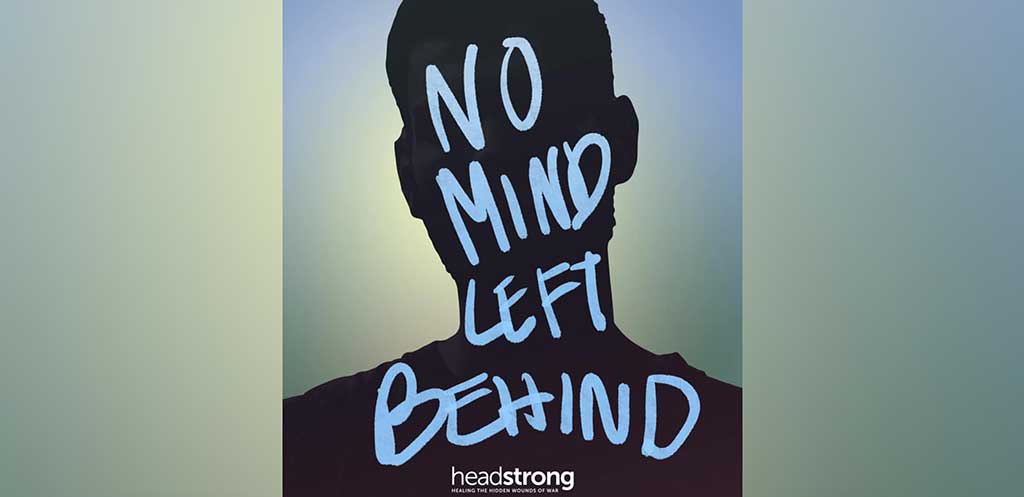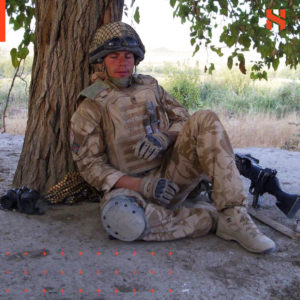 “In the British Army, you don’t get anything like the GI bill so people join for one of two reasons: it’s the only job you can get or you want to go to war. There was nothing else I wanted to do and I didn’t have any other interests. I knew it was going to be the military infantry and that was that. It’s the great adventure. I graduated college in 2005 and immediately tried to go to Iraq but didn’t get there until the end of 2006. I was on the sidelines for most of my first deployment. We’d be out on the ground because there were some really big fights going on just a couple kilometers away but we were never called in for help. It was like being on the football team but never getting called in to play. After spending six months there and seeing limited activity, I voluntarily stayed on for a second tour. I did back to back tours so I could be more in the thick of it and feel like I was contributing to the overall mission. That second part of the deployment was more kinetic but I’d be in the middle of some really big fights and couldn’t tell you about any of them. My job required me to be in the back of a warrior fighting vehicle and I would have no idea what was going on because you’re in the back of this machine and can’t see anything. It was frustrating that we spent a lot of time and there were a lot of casualties. Most of the British casualties were sustained while I was there, but due to the British rules of engagement, our hands were tied in terms of what we could do. My third deployment to Afghanistan really made up for any action I missed in Iraq. The day that I flew to Afghanistan, I went to a funeral for a friend of mine that’d been killed in a different unit. Our third day on the ground my vehicle got blown up and the driver died of his injuries. We dealt with gunshot wounds, RPG wounds, and IED casualties. That deployment sustained the heaviest losses for the British Army since Korea, but I still feel like we got lucky because it could’ve been a lot worse.
“In the British Army, you don’t get anything like the GI bill so people join for one of two reasons: it’s the only job you can get or you want to go to war. There was nothing else I wanted to do and I didn’t have any other interests. I knew it was going to be the military infantry and that was that. It’s the great adventure. I graduated college in 2005 and immediately tried to go to Iraq but didn’t get there until the end of 2006. I was on the sidelines for most of my first deployment. We’d be out on the ground because there were some really big fights going on just a couple kilometers away but we were never called in for help. It was like being on the football team but never getting called in to play. After spending six months there and seeing limited activity, I voluntarily stayed on for a second tour. I did back to back tours so I could be more in the thick of it and feel like I was contributing to the overall mission. That second part of the deployment was more kinetic but I’d be in the middle of some really big fights and couldn’t tell you about any of them. My job required me to be in the back of a warrior fighting vehicle and I would have no idea what was going on because you’re in the back of this machine and can’t see anything. It was frustrating that we spent a lot of time and there were a lot of casualties. Most of the British casualties were sustained while I was there, but due to the British rules of engagement, our hands were tied in terms of what we could do. My third deployment to Afghanistan really made up for any action I missed in Iraq. The day that I flew to Afghanistan, I went to a funeral for a friend of mine that’d been killed in a different unit. Our third day on the ground my vehicle got blown up and the driver died of his injuries. We dealt with gunshot wounds, RPG wounds, and IED casualties. That deployment sustained the heaviest losses for the British Army since Korea, but I still feel like we got lucky because it could’ve been a lot worse.
Afghanistan was my last deployment and I decided to separate after that. At first, my transition was awesome because I was doing maritime security with other soldiers so I still feel like I had that brotherhood; however, they started slowly outsourcing that job to other people. Soon after that I realized that brotherhood was never going to be the same and that’s when I started to struggle. I went off the rails and started doing drugs every day and lost all purpose in my life. I was obviously suppressing a lot of stuff and got diagnosed with PTSD, but honestly I don’t think PTSD was causing the majority of my problems. I think the majority of my problems came from the fact that I was 30 years old and I felt like I’d already lived my life. I think a lot of soldiers go through a midlife crisis in their 20s instead of their 50s because of the experiences they’ve gone through. I started going to therapy and that helped a lot. I did the cognitive behavioral therapy treatment and found that beneficial. I think everyone should go through therapy at some point to work on themselves and their experiences, but especially those of us that have gone to war. I’ve always enjoyed reading and writing and in a way I think those are very therapeutic outlets for me as well. 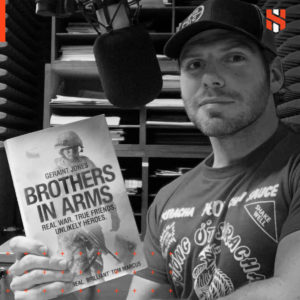 I’ve written 12 books now and even did a historical fiction series that Penguin published. I’ve also ghost written a bunch of books for other people in the military and done a few books with James Patterson. Now I’m working on a dystopian future novel, kind of like a 1984 thing, but with my experiences as a soldier. I just write whatever I feel like, including TV but mostly books. I enjoy writing about my time in the service and I encourage others to join because the brotherhood and those experiences can never be replicated in any other facet of life.”
I’ve written 12 books now and even did a historical fiction series that Penguin published. I’ve also ghost written a bunch of books for other people in the military and done a few books with James Patterson. Now I’m working on a dystopian future novel, kind of like a 1984 thing, but with my experiences as a soldier. I just write whatever I feel like, including TV but mostly books. I enjoy writing about my time in the service and I encourage others to join because the brotherhood and those experiences can never be replicated in any other facet of life.”

